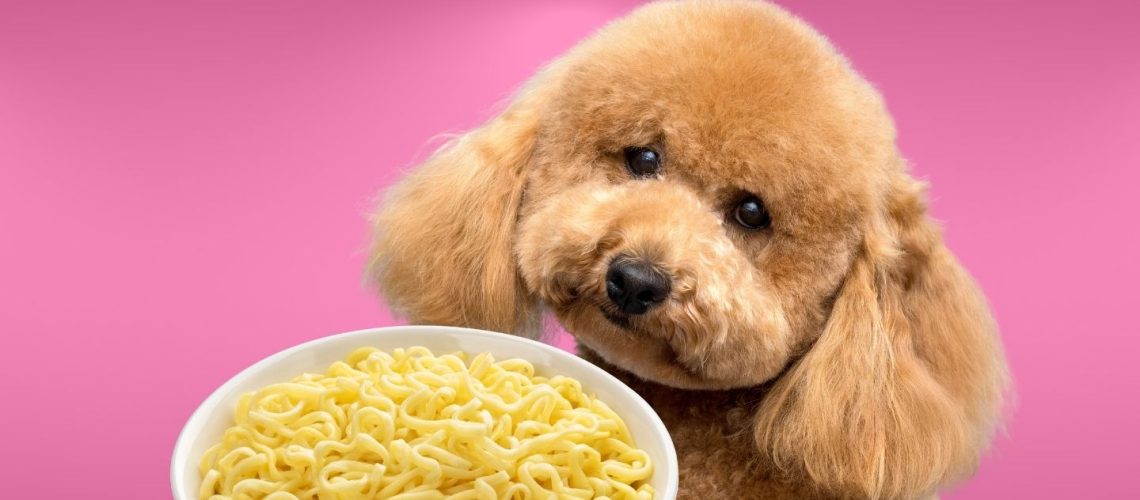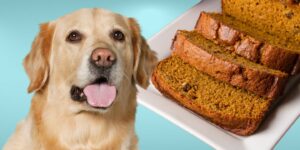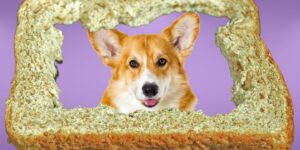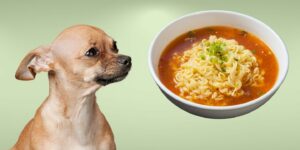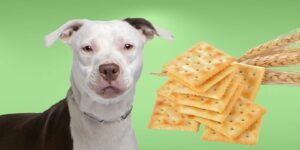The short answer is yes, dogs can eat noodles. Noodles are not toxic to dogs and can make a tasty treat for your furry friend. However, there are a few important things to keep in mind before feeding noodles to your dog.
Nutritional Needs of Dogs
Dogs require a balanced diet containing essential nutrients like protein, fats, vitamins, and minerals. Their dietary requirements vary based on their size, age, and activity level. Ensuring your dog consumes a well-rounded diet will keep them healthy and energetic.
Noodles and Dogs: The Pros and Cons
While noodles are safe for dogs to consume, moderation is key. Nutritional benefits of noodles include being a source of carbohydrates, which provide energy. However, the potential risks associated with regular noodle consumption are weight gain, allergies, and gastrointestinal issues. It is important to feed noodles sparingly and choose options with fewer additives and artificial ingredients.
Types of Noodles: The Good, the Bad, and the Ugly
When feeding your dog noodles, some options are better than others:
Whole wheat noodles
These are a better choice than refined flour noodles, as they contain more fiber and nutrients.
Rice noodles
Made from rice flour, they are a good alternative for dogs with wheat allergies or sensitivities.
Instant noodles/ramen
Avoid feeding these to dogs since they contain high levels of sodium and artificial additives.
Egg noodles
While safe in moderation, they are high in calories and might not be the best choice for overweight dogs.
Vegetable-based noodles (e.g., zucchini noodles)
These provide additional nutrients and are a healthier option compared to traditional noodles.
Noodles with added ingredients (e.g., salt, preservatives, artificial colors)
Always avoid noodles with potentially harmful additives for your dog's health.
Preparing Noodles for Dogs
When cooking noodles for your dog, keep them plain and avoid using oils or salt. Add safe toppings and mix-ins, such as unprocessed meats and vegetables, to make the treat more nutritious. Steer clear of foods that can be toxic to dogs, like onions, garlic, and chocolate.
Serving Size and Frequency
Determining the appropriate portion size should depend on your dog's size and activity level. Noodles should only be an occasional treat, not a regular part of their diet. Be mindful of signs of overfeeding, such as weight gain and gastrointestinal issues.
Alternatives to Noodles for Dogs
If you're looking for healthier treats, consider offering:
- Fresh fruits like apples, bananas, and blueberries
- Raw carrots, green beans, and sweet potatoes
- Commercially available dog treats and chews
- Homemade dog treat recipes with safe ingredients
Potential Health Issues from Feeding Noodles to Dogs
Feeding your dog noodles too often could lead to:
- Weight gain and obesity
- Allergies or intolerances
- Gastrointestinal issues, such as diarrhea or constipation
Tips for Introducing New Foods to Your Dog's Diet
Introduce new foods to your dog gradually by mixing them with their regular food. Always monitor for adverse reactions, such as diarrhea, vomiting, or skin irritations. It's also a good idea to consult with your veterinarian before adding new ingredients to your dog's diet.
Conclusion
In conclusion, dogs can safely eat noodles in moderation. However, it is important to choose the right type of noodles and feed them in appropriate portions. Noodles should not be a regular part of your dog's diet but can make a tasty and occasional treat. Always prioritize your pet's nutritional needs and health when introducing new foods to their diet.

